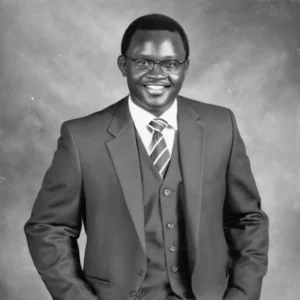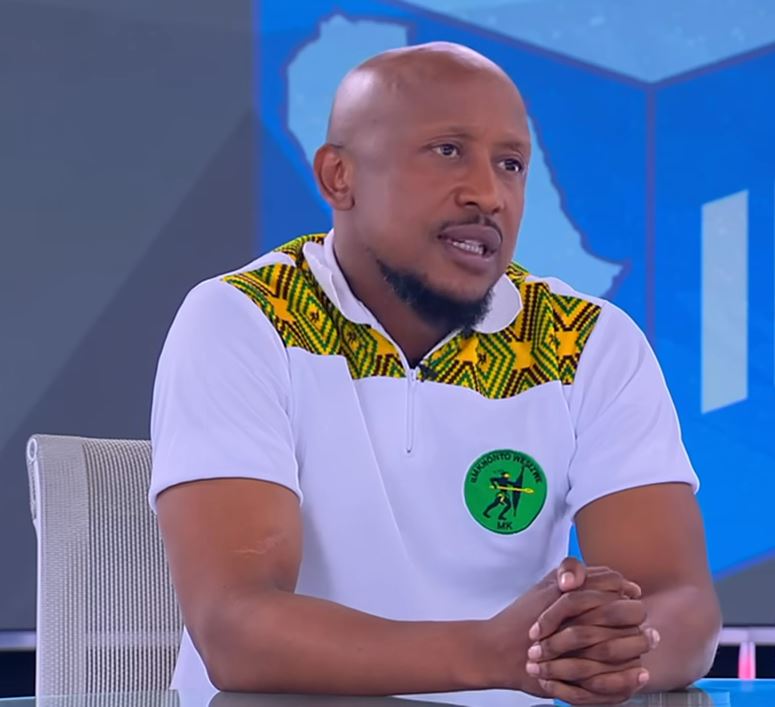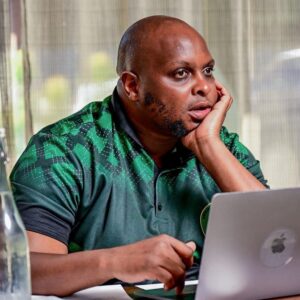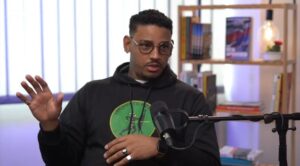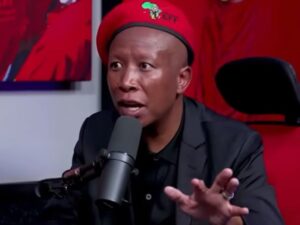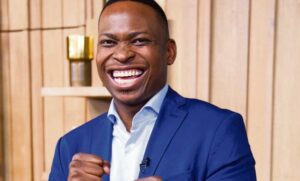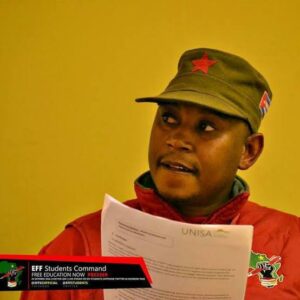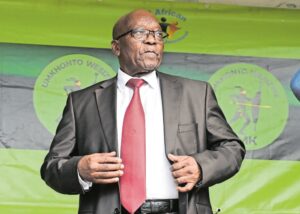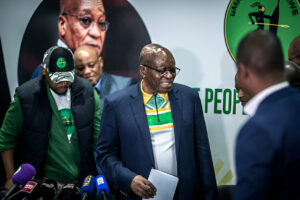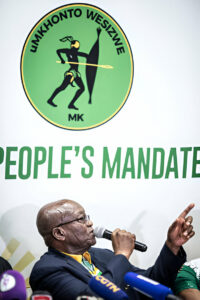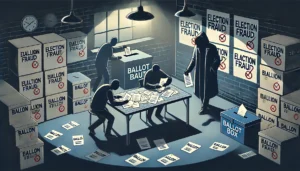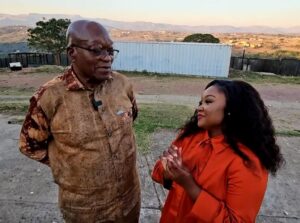Xoli Mngambi: All right, let’s discuss the possible implications of the constitutional court’s ruling on the MK party, particularly its leader. For this discussion, we’re joined by the party’s spokesperson, Ndlamulo Ndlela, and political analyst, Professor Dirk Kortse, who is attached to the University of South Africa. Thank you both for your time.
Xoli Mngambi: Let me start in the studio. Mr. Ndlela, good evening to you. Earlier today, you were quoted as saying that the former president and leader of the MK party is not power-hungry. He never said he wanted to go to parliament. How does that fit with him bringing a counter-application in this very same court case, where he even called for six judges to recuse themselves because they were part of the decision that led him to be sent to jail in the first place? Balance the two for us.
Ndlamulo Ndlela: I think there may be a misconception here. President Zuma stated that if the people want him to lead and become president of this country, that will be the case. Hence, we’re gunning for a two-thirds majority to change the constitution to bring President Zuma into power. When I said President Zuma is not power-hungry, I meant exactly that. He is a selfless leader. Based on whatever decision we take when we win the two-thirds majority and get into government, we’ll make a determination then. He will decide if he wants to be president or deploy someone else. That’s our position.
Xoli Mngambi: How does that make sense? That he will make a decision about whether or not he wants to lead or put forward someone else to lead as president. And this is based on the MK winning the election hands down. How would that work if he is not allowed to be a member of parliament?
Ndlamulo Ndlela: That’s your view and a misconception. There are other options. President Zuma doesn’t have to be president if he doesn’t want to. Another option is taking this matter to the UN Human Rights Committee. There was a similar case in Sri Lanka where the UN Human Rights Committee overturned a court order, allowing a political leader to run for elections. So it’s not the end of the road for President Zuma.
Xoli Mngambi: Are you suggesting that he may end up at this UN court?
Ndlamulo Ndlela: That’s exactly what we’re going to do. We’re taking this matter to the United Nations Human Rights Committee to get it overturned. There are many ways to skin a cat here, Xoli. Also, we want a two-thirds majority to change this constitution based on Roman Dutch law, which is being abused by judges who are not even elected by our people. Six of them should have recused themselves from the case. How is it possible that unelected judges make decisions that infringe on the rights of South Africans who want their leader, President Zuma, in parliament?
Xoli Mngambi: All right, let’s get the views of Professor Dirk Kortse. Prof, I hope you were able to hear Mr. Ndlela’s submissions. Let’s start with the first element about the former president not being power-hungry and possibly not wanting to go to parliament, and that he may still take this further because he is not satisfied with South African courts. He may take it to a court outside of South Africa.
Professor Dirk Kortse: It’s difficult to bring the different ends together. On one hand, it’s clear President Zuma is fully involved in this election campaign. He is the face of the MK party. So, it’s all about power, as it is with all political parties. The talk of a two-thirds majority is about gaining maximum power in parliament, which applies to President Zuma and the MK party.
The new element introduced is the possibility of going beyond the South African judiciary. There is the option to go to the African Court of Human and People’s Rights. But according to our constitution, the constitutional court is the supreme court in South Africa with the highest authority, and there’s no official appeal beyond it. The Human Rights Commission has no legal powers over South Africa. Today’s judgment is final within the South African legal system.
Xoli Mngambi: Prof, before I come back to Mr. Ndlela in the studio, you constantly hear from the MK party that the judges in South Africa are not elected by the people. What authority do they have over someone elected by the people? Former President Zuma himself reminded people that the state is made up of the judiciary, the executive, and the legislature. Today, comments suggest that these judges are almost a law unto themselves. Make sense of that for us.
Professor Dirk Kortse: Judges are appointed based on public nominations. The Judicial Service Commission, which includes members of parliament and the legal fraternity, conducts public interviews. Then, there’s a vote in the National Assembly before the president makes the final appointment. This process ensures representation. Comparing this to the American system where the president nominates judges, which is highly politicized, our system aims to avoid such politicization.
Xoli Mngambi: Mr. Ndlela, is that where you want to lead us, where the court system is politicized?
Ndlamulo Ndlela: We will review that when we sit with our leadership. President Zuma doesn’t have to go to parliament to lead this country. We can deploy someone else as president, and he can lead through that person. We’re not perturbed by this outcome. Our campaign continues, and it reinforces our position that the system is not working. The Roman Dutch law constitution doesn’t reflect the people of this country.
Xoli Mngambi: The professor mentioned that the UN Human Rights Committee has no legal authority over South Africa’s legal system. Is this exercise futile?
Ndlamulo Ndlela: You may see it that way, but there is case law in Sri Lanka where a similar situation was overturned by the UN Human Rights Committee. We are part of the UN, so we can’t be separated from that. We will take this matter to the UN Human Rights Committee.
Xoli Mngambi: Is there a firm date for when President Zuma intends to go to the UN body?
Ndlamulo Ndlela: The decision was taken today, so we are in consultation with our legal team and will announce it in due time.
Xoli Mngambi: Former President Zuma is the embodiment of the MK party. What is it about the MK wanting to change the South African legal system? What is wrong with it?
Ndlamulo Ndlela: The current legal system benefits a few. The constitution based on Roman Dutch law does not reflect us and serves the few. We need to change it to reflect the majority and serve the downtrodden. We need to nationalize the mines, the banks, and the Reserve Bank. The current constitution will not allow us to do so unless we change it.
Xoli Mngambi: Professor Kortse, your view on the direction the MK party wants to take South Africa?
Professor Dirk Kortse: The MK party positions itself to the left economically, similar to the EFF. There are conservative social policies, such as compulsory military service and strong traditional leadership roles. It’s a mixed bag, making it difficult for the electorate to determine the policy package. The radical transformation proposed will cause significant upheaval. However, the response to today’s judgment shows a responsible approach.
Xoli Mngambi: Professor, your final comments. The MK filled Orlando Stadium to capacity. What does that represent for the final vote? Is the MK likely to get the two-thirds majority or play a kingmaker role?
Professor Dirk Kortse: In KwaZulu-Natal, the MK will be significant, possibly receiving the most votes. Nationally, support varies, with some provinces showing minimal support. Predictions suggest around 8%, similar to COPE in 2009 and the EFF in 2014.
Xoli Mngambi: Mr. Ndlela, if you don’t get the two-thirds majority, what are your conditions for a coalition?
Ndlamulo Ndlela: We’re not thinking of coalitions at this point. We’re focusing on the majority. We know from being on the ground that we have significant support, especially among the youth. We may consider alliances with like-minded parties post-election, but right now, our focus is on achieving a two-thirds majority.
Xoli Mngambi: Thank you, Mr. Ndlamulo Ndlela, spokesperson of the MK party, and Professor Dirk Kortse, for your contributions this evening.
